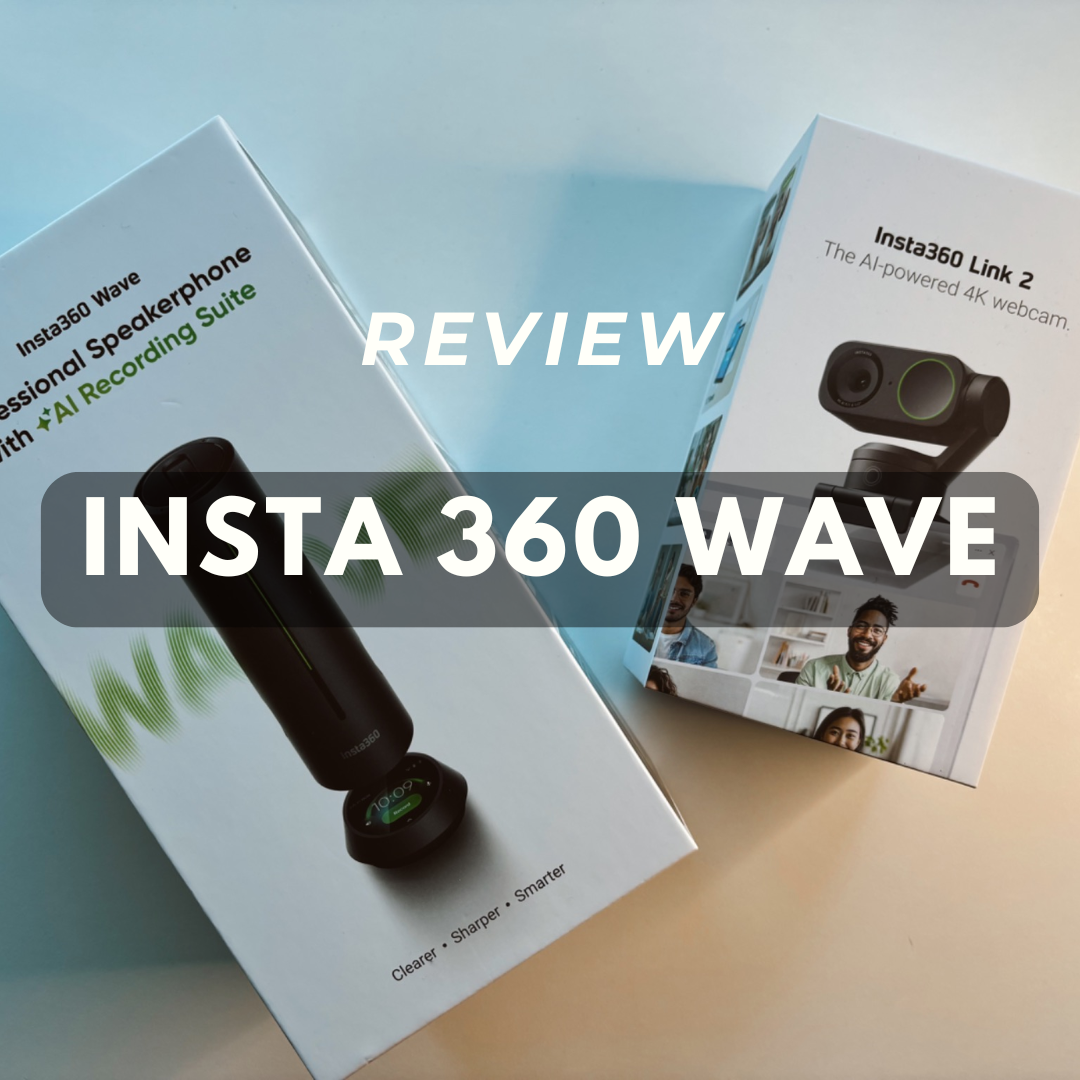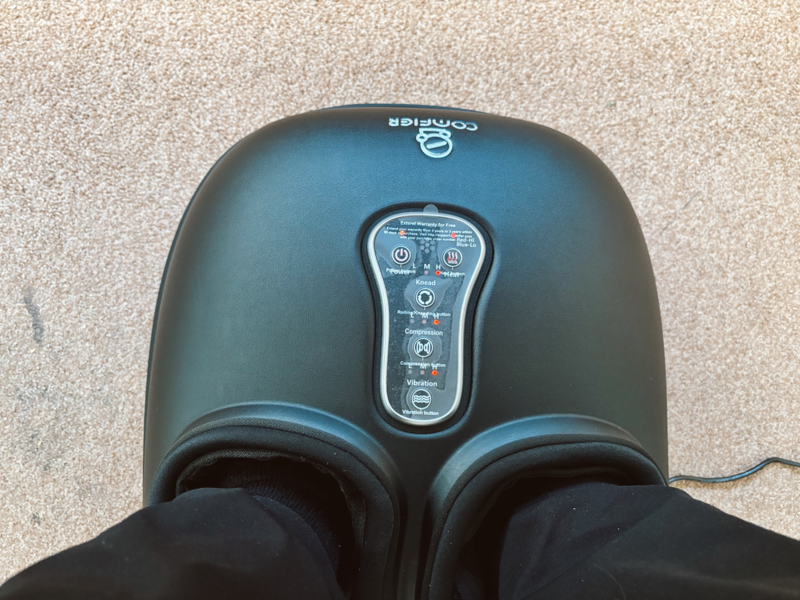From iPhone to Pixel 6A: Why I Made the Switch and Never Looked Back
/In 2001, I took my first steps into the Apple ecosystem with a sleek iMac that seemed lightyears ahead of its time. Joining the Apple community back then meant something special – it meant being different, on the cutting edge, and part of a select group of tech enthusiasts who dared to think differently.
For many years, Apple's allure remained captivating. The company redefined industries with the iPhone, iPad, and a plethora of groundbreaking products. But as success soared, something shifted. What was once an exclusive club of innovation-seekers began to feel more like the norm. My visits to the local Apple Store were eye-opening, revealing that, at 49, I was often one of the younger customers. It seemed that Apple, the trailblazer, had settled into a comfortable rhythm, leaving behind the vibrant and edgy spirit that once defined it.
Enter Google.
In recent times, I've witnessed a transformation in the tech landscape. Google, with its ever-evolving portfolio of products and a renewed sense of innovation, has taken center stage. It's become the torchbearer of what it means to be daring, inventive, and ahead of the curve in today's rapidly changing digital world.
This transformation in the tech industry is what has finally led me to make a bold decision: bidding farewell to my trusty iPhone 13 Pro Max and embracing the Google Pixel 6a. Join me on this journey as I delve into the reasons why I'm making this switch, and why I believe Google is the new home for those seeking the thrill of tech innovation.
Chapter 1: The Evolution of Operating Systems: iOS vs. Android Pixel
In the realm of smartphones, the choice of operating system has always been a pivotal decision. For years, iOS, Apple's crown jewel, stood as a paragon of simplicity, elegance, and seamless integration across all your Apple devices. However, as the years have rolled by, I've noticed a gradual shift in the tech landscape.
iOS: The Apple Elegance
My journey into the world of smartphones began with iOS, and I must admit that it was a captivating experience. Apple's operating system has consistently delivered a polished, user-friendly environment that made everyday tasks a breeze. It excelled in offering an ecosystem where all your Apple devices sang in perfect harmony, creating an unparalleled user experience.
Yet, even though iOS has maintained its reputation for reliability, the landscape has changed. The hallmark simplicity has started to blur into complexity. iOS has become a canvas filled with an ever-expanding palette of features, some of which feel like a puzzle to find and use effectively. Apple's drive to pack more into each update can make the operating system appear cluttered, with choices that sometimes leave users scratching their heads.
Android Pixel: A New Frontier
This is where Google's Android Pixel enters the picture as a breath of fresh air. Android's early years were indeed marked by a reputation for being chaotic and less user-friendly compared to iOS. However, the Android ecosystem, under Google's stewardship, has undergone a remarkable transformation.
With a Google Pixel phone, you're not just getting any Android experience; you're getting Android as Google envisions it. The result is a finely tuned operating system that's both powerful and intuitive. Google has made it a point to streamline the user interface and user experience, making it cleaner and more accessible.
One standout feature of Android Pixel is the central role of the Google Assistant. While Siri has its merits, the Google Assistant has emerged as a formidable competitor. Its natural language processing and contextual understanding often make it feel like you're conversing with an intelligent digital companion rather than a virtual assistant.
The Winner: Android a la Pixel
When it comes to the iOS vs. Android debate, it's clear to me that Android a la Pixel has taken the lead. It's no longer the chaotic and complicated system of yesteryears. Instead, it's a refined, cohesive, and innovative platform that puts Google's expertise at the forefront.
Switching to a Google Pixel phone means embracing an operating system that's cutting-edge without feeling cluttered. It's about stepping into a tech ecosystem where the Google Assistant is your trusted guide, making your daily tasks more efficient and enjoyable. In a world where simplicity meets innovation, Android Pixel stands tall as the clear winner.
Chapter 2: Phone Personalities: iPhone Elegance vs. Pixel Panache
In the world of smartphones, there's no denying that Apple's iPhones have reigned supreme in terms of design, build quality, and performance. As someone who has cherished their iPhone journey, I've marveled at the impeccable craftsmanship and sleek aesthetics of these devices. However, as the years have rolled on, I've found myself on a quest for something different, something with a touch of personality that extends beyond the traditional Apple allure.
The Apple Price Tag Dilemma
Let's address the elephant in the room: iPhones are no budget-friendly companions. My trusty iPhone 13 Pro Max, while undoubtedly a technological marvel, still carries a hefty price tag. Year after year, it seems that Apple's flagship devices become more exclusive in their pricing, leaving many potential customers pondering whether they are truly worth the premium.
But it's not just the price that's driven me to explore new horizons. iPhones, while undoubtedly outstanding pieces of technology, have, in my eyes, become beautifully boring. The design language, while refined and iconic, has seen minimal evolution. It's as if Apple is playing it safe in a world where innovation is the currency of progress.
The Pixel Difference: Design with a Twist
Enter Google Pixel, and you're immediately greeted with a different perspective on smartphone design. The horizontal camera setup, for instance, is a design choice that sets Pixel phones apart from the vertical camera arrays of many competitors, including iPhones. It's a unique touch that adds personality to the device.
But the differentiation doesn't stop there. Pixel phones, especially the Pixel A series, exude a vibrant, colorful charm that dares to stand out in a sea of monotone devices. My personal companion, the Pixel 6A in the refreshing sage color, exemplifies this approach. While it boasts a plastic back, a choice some might consider non-premium, I find it liberating.
The plastic back of the Pixel 6A isn't a compromise; it's a breath of fresh air. It's meticulously crafted and exudes a sense of sturdiness that makes me confident in using the phone without the need for a bulky cover case. It's a testament to Google's commitment to practical design that doesn't sacrifice style.
The Refreshing Difference
In a world where iPhones tend to blend into the crowd, Google's Pixel line offers a refreshing departure. It's about embracing technology with a dash of personality, celebrating the differences, and challenging the status quo. It's about recognizing that premium isn't solely defined by price tags and materials but also by the experiences a device can deliver.
My journey to the Google Pixel 6A has allowed me to break free from the beautifully boring and explore a world of smartphone personality.
Chapter 3: Voice Assistants Unleashed: Google's Genius vs. Siri's Stagnation
In the ever-evolving landscape of technology, voice assistants have become our digital companions, ready to assist with tasks, answer questions, and make our lives easier.
Siri: The Familiar Friend with Limitations
Siri, the voice assistant that first captivated our hearts, has long been a familiar presence in the Apple ecosystem. However, familiarity sometimes breeds frustration. Despite Apple's ongoing efforts to enhance Siri, it often feels like a voice assistant stuck in time. Siri is competent at performing basic tasks like setting reminders or sending messages, but its limitations are all too evident.
One aspect I've never quite understood about Apple is the lack of significant progress in improving Siri's capabilities. It's as if Siri exists merely as a feature reminder rather than a cutting-edge, intelligent companion. The promise of Siri from five years ago remains largely unfulfilled, leaving users wanting more.
Google Assistant: A Brilliant Digital Companion
On the flip side, Google Assistant is the embodiment of a voice assistant that continually evolves and impresses. With a Pixel phone, Google Assistant is not just a passive presence; it's the beating heart of the device. Google's commitment to innovation shines through, making the Pixel phone feel like it was designed around the Assistant itself.
The live translation feature, for instance, is nothing short of remarkable. It's a testament to the power of AI and natural language processing, enabling seamless communication across languages in real-time. It's a tool that goes beyond mere convenience; it's a bridge that connects people across cultures.
What sets Google Assistant apart is its ability to understand context and provide intelligent responses. It feels like having a conversation with a genuinely clever companion who comprehends your needs and delivers relevant information or assistance. The Google Assistant is a continuous learner, adapting to your preferences and evolving alongside your daily routines.
The Clear Choice: Google Assistant
In the world of voice assistants, my choice is clear: Google Assistant reigns supreme. It's not just a voice assistant; it's a trusted companion that enhances my daily life. While Siri remains a familiar face, it lags behind in the race for innovation and intelligence.
The decision to switch to a Pixel phone was, in part, driven by my desire to experience the true potential of Google Assistant.
Chapter 4: Capturing the World: Google Pixel's Camera Revolution
In the world of smartphones, the camera has emerged as one of the most vital aspects of our daily lives. Whether it's capturing cherished moments or sharing our world with the digital realm, the camera is the window through which we see and experience the world. When it comes to photography, iPhones have long been celebrated for their incredible capabilities, especially in video production. However, the rise of Google Pixel has reshaped the landscape of mobile photography, proving that there's a new contender in town.
iPhone: The Video Pioneer
Let's begin with a nod to the iPhone, renowned for its exceptional camera and video capabilities. iPhones have consistently delivered stunning image quality and have become a trusted tool for content creators and photography enthusiasts alike. When it comes to videography, the iPhone's prowess is hard to match, setting the standard for mobile filmmaking.
Google Pixel: A Masterpiece in Computational Photography
While iPhones may have had the spotlight in the past, Google Pixel has stepped onto the stage with a groundbreaking approach to photography. The magic behind Pixel's camera lies in computational photography, a fusion of artificial intelligence, machine learning, and pixel-level processing. Every photo taken with a Pixel device benefits from this technology, resulting in consistently exceptional images.
What sets Pixel's photos apart is their distinctive look. There's a certain quality to a Pixel picture that's difficult to describe but easy to recognize. It's a blend of vibrant colors, incredible detail, and a remarkable ability to capture moments in all their natural beauty. Whether you're taking photos in broad daylight or low-light conditions, Google Pixel's camera consistently delivers.
The Video Evolution: Tensor Chip and Beyond
One of the key milestones in Pixel's journey was the introduction of the Tensor chip. This powerful hardware component has catapulted Pixel's video capabilities to new heights. While iPhones have long held the crown in mobile videography, Google Pixel is now a formidable contender. With the Tensor chip, Pixel devices are capable of producing videos that rival the quality and cinematic feel of iPhone recordings.
Astrophotography is another standout feature that's unique to Pixel. The ability to capture stunning shots of the night sky with incredible clarity is a testament to the Pixel's camera innovation. It's an ideal companion for those who appreciate the beauty of the cosmos and want to share it with the world.
The Primary Reason: Embracing Pixel's Camera
For me, the decision to switch to a Google Pixel phone boils down to the camera. It's not just about capturing moments but experiencing them in a new light. Google Pixel's computational photography has redefined what's possible with a smartphone camera, and the results speak for themselves.
Conclusion
Perhaps one of the most significant factors in my decision to switch is the cost. My Google Pixel 6A, with all its incredible features, costs less than £300, a substantial saving compared to the iPhone 13 Pro Max. It's a testament to Google's commitment to offering premium experiences at affordable prices.
As I embark on this new chapter with my Google Pixel 6A, I'm excited about the possibilities it brings. It's a journey that celebrates innovation, personality, and practicality, all while staying mindful of the budget. My Google Pixel 6A is more than a phone; it's a companion that redefines what's possible in the world of smartphones.
Jerome



































